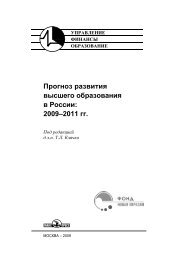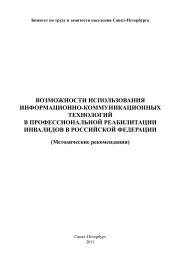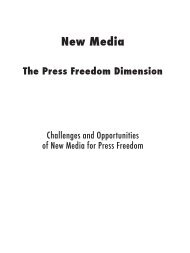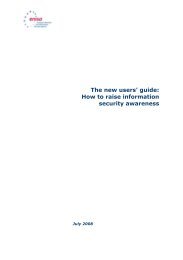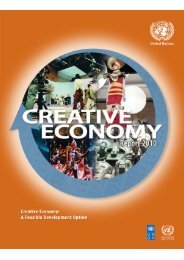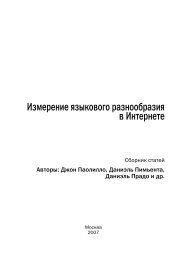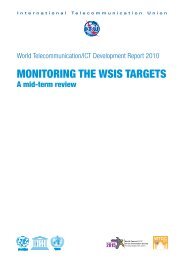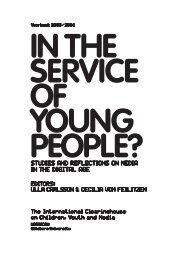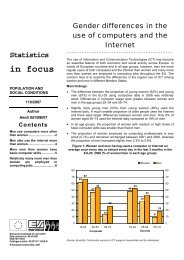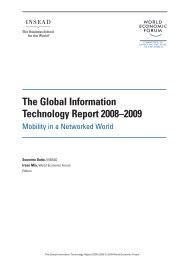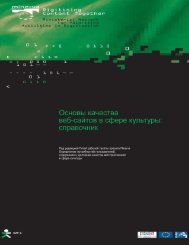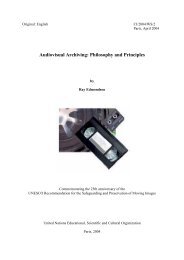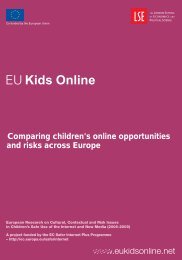Model curricula for journalism education for developing countries ...
Model curricula for journalism education for developing countries ...
Model curricula for journalism education for developing countries ...
You also want an ePaper? Increase the reach of your titles
YUMPU automatically turns print PDFs into web optimized ePapers that Google loves.
11<br />
of practising journalists is also offered in Appendix 1. Other programs (a postbaccalaureate<br />
diploma, <strong>for</strong> example) may be adapted from these <strong>curricula</strong>.<br />
BACHELOR’S DEGREE IN JOURNALISM AND ARTS AND SCIENCE<br />
Students entering a bachelor’s program in <strong>journalism</strong> should have completed<br />
secondary school at a standard required <strong>for</strong> university admission and should be able<br />
to read, write and speak correctly in their own language and in the language(s) they<br />
will be using as journalists. In a university program, the development of <strong>journalism</strong><br />
practice (the first axis) is in<strong>for</strong>med and enriched by the study of <strong>journalism</strong> in society<br />
(the second axis) and by the acquisition of the methods and content marking modern<br />
knowledge through courses in other disciplines (the third axis). Students should be<br />
encouraged to take a concentration in a second discipline to provide a foundation <strong>for</strong><br />
specialized <strong>journalism</strong> in that subject and to qualify them <strong>for</strong> post-graduate study.<br />
Journalism at the university undergraduate level may be offered in a three-year or a<br />
four-year program.<br />
Three-year Undergraduate Degree<br />
First year<br />
First term<br />
• Foundations of <strong>journalism</strong>, with units in:<br />
Writing (incorporating grammar and syntax, and narrative,<br />
descriptive and explanatory methods)<br />
Logic, evidence and research (incorporating critical thinking)<br />
National and international institutions<br />
(incorporating a basic understanding of one’s own country’s system<br />
of government, its constitution, system of justice, political process,<br />
economy, social and cultural organization, its relations with other<br />
<strong>countries</strong>, and the place of <strong>journalism</strong> in the architecture of<br />
democracy)<br />
General knowledge<br />
(incorporating a basic knowledge of national and international<br />
history and geography and an introduction to contemporary social<br />
and other issues of importance to journalists, including gender,<br />
cultural diversity, religion, social class, conflict, poverty,<br />
development issues, and public health issues, with training in<br />
applying analytical and critical techniques to news coverage of these<br />
issues)<br />
Arts/science courses



